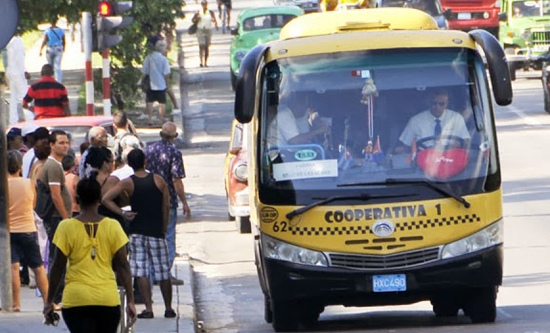
Over the past year the number of approved non-agricultural co-operatives in Cuba has grown to 498. With the aim of increasing productivity and efficiency, these workers’ associations are an important aspect of the Economic and Social Policy Guidelines of the Party and Revolution approved in April 2011.
Whilst agricultural co-operatives have existed throughout the Cuban revolution, the first non-agricultural co-operatives (CNAs) were created by temporary law decree in December 2012. They fall into two main categories, ‘self-effort’ co-operatives established by the initiative of three or more people, and ‘conversions’, where the state is shutting down an enterprise and gives its workers the option to form a co-operative. CNAs can also be formed by the association of two or more co-operatives, whereby, for example, one co-operative organises transportation or adds value to another’s goods and services. With a new General Law of Co-operatives anticipated in 2016, the CNAs will complement the agricultural co-operatives which currently organise 66% of agricultural workers.
By the end of 2014, of the 498 approved CNAs, 283 were fully operational in commerce, restaurant services, construction, transportation, food processing, energy and accounting. 384 (77%) were ‘conversions’ with 114 ‘self-effort’. Nearly half (43%) are in the gastronomy sector, 14% in construction and 6.5% in personal and technical services. In September 2014, 8,980 state run restaurants were approved for gradual conversion into paladares (self-employed, usually family-run, restaurants established in 1993) whose capacity has been increased from 12 to 50 guests, to meet the increasing demand in tourism. Whilst around 68% of Cuba’s restaurants are currently under state management, there are already more than 1,260 paladares in Cuba, many managed as CNAs. This conversion will gradually extend to all state restaurants, and personal and technical services by 2016.
The new CNAs are regulated by the Ministry for Domestic Commerce. New CNAs must present an application to their municipal bodies of People’s Power and will require Council of Ministers approval. They will be funded by a combination of employee contributions, bank loans and a Ministry of Finance fund. CNAs may do business with government entities, state enterprises and private enterprises. They will set their own prices except in specific state-regulated markets. They are legally required to pay 10% tax on sales, a 20% tax on non-member labour contracts, a social security contribution for each worker, and to set aside contingency reserves. Co-operatives may hire temporary workers for terms of up to 90 days, but no more than 10% of work-days in any year may be performed by hired labour. Once employee contributions have been repaid and no bank payments are due, the CNAs can decide how to distribute their surplus. Earnings will be taxed at rates lower than those required of self-employed workers. The CNAs will not own their enterprises, but may own equipment or other assets. Leases will be up to ten years, renewable for an equal term. The 2011 Guidelines are clear, the economy will continue to be planned and ‘based on the people’s socialist ownership over the fundamental means of production’.
The shift towards non-agricultural co-operatives is driven by the need to boost domestic production, substitute imports and raise salaries. To this end, in 2010 the Cuban Trade Union Confederation announced plans to gradually transfer one million state sector workers in surplus posts (19.2% of the labour force) into alternative employment between 2011 and 2015. Agricultural and non-agricultural co-operatives were their preferred destination due to their relatively social nature.
The cautious progress of co-operatives is the subject of debate, nationwide evaluation and discussion. The current economic plan predicts GDP growth of 4% for 2015; the co-operatives have a crucial role to play.
Andrew George
Fight Racism! Fight Imperialism! 244 April/May 2015




